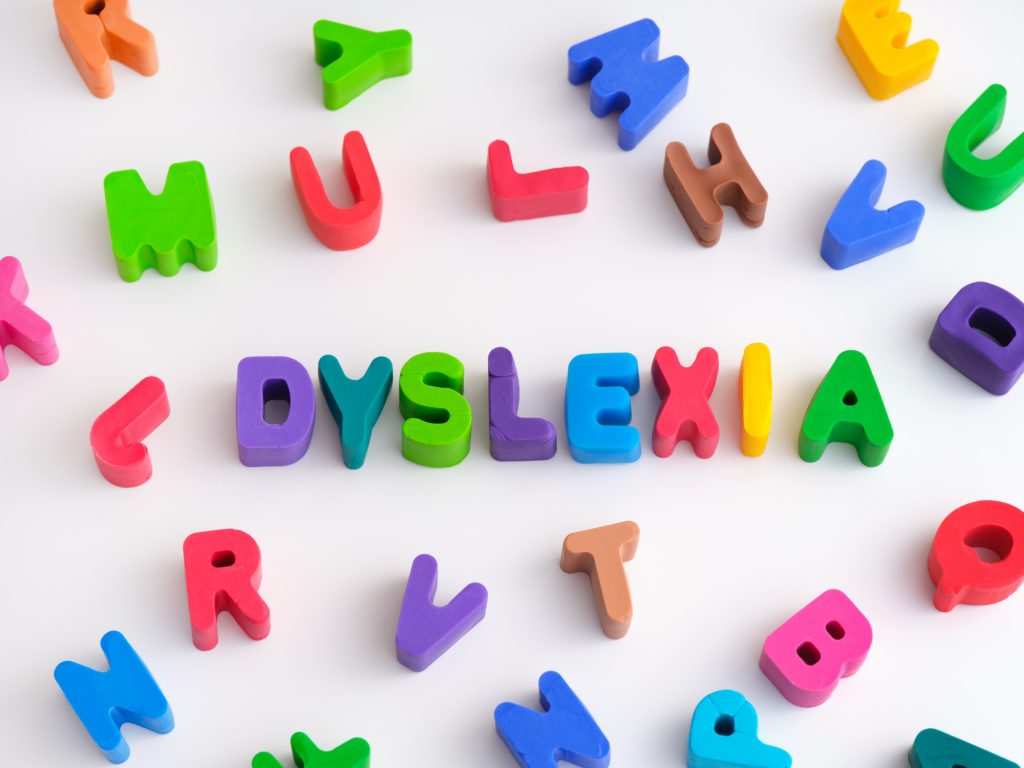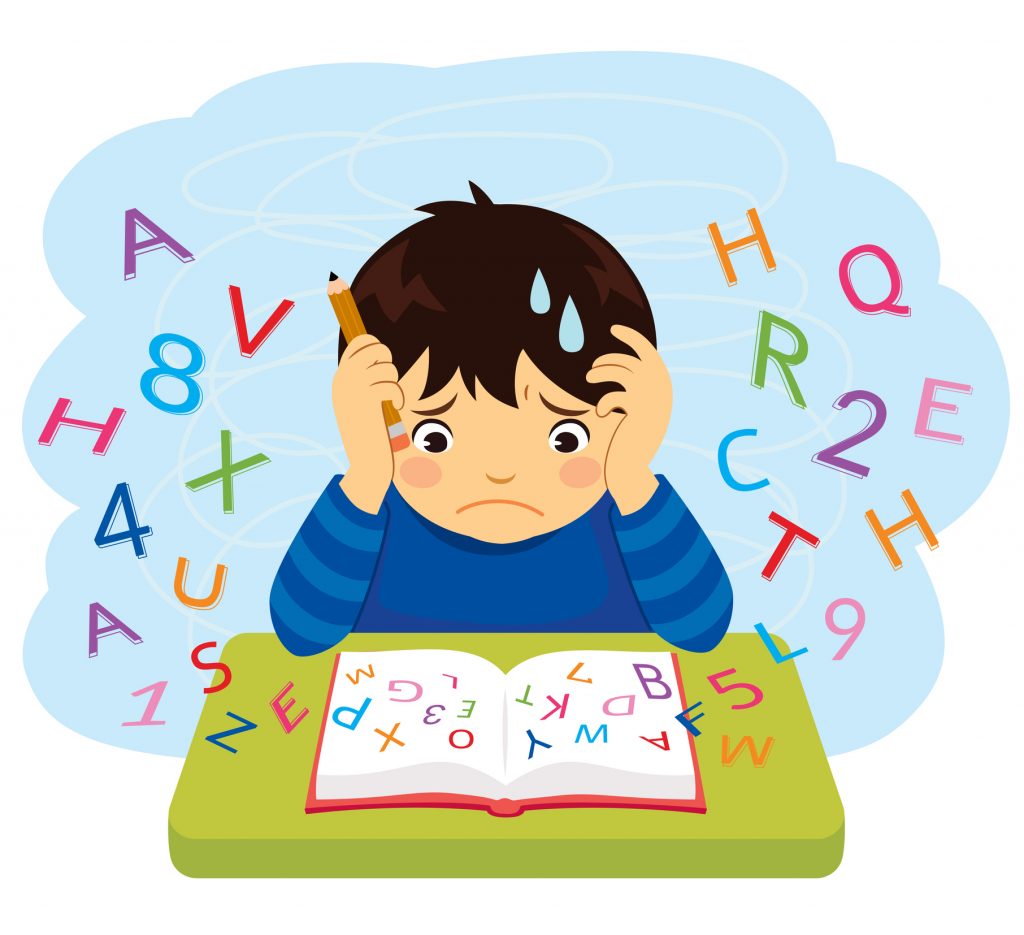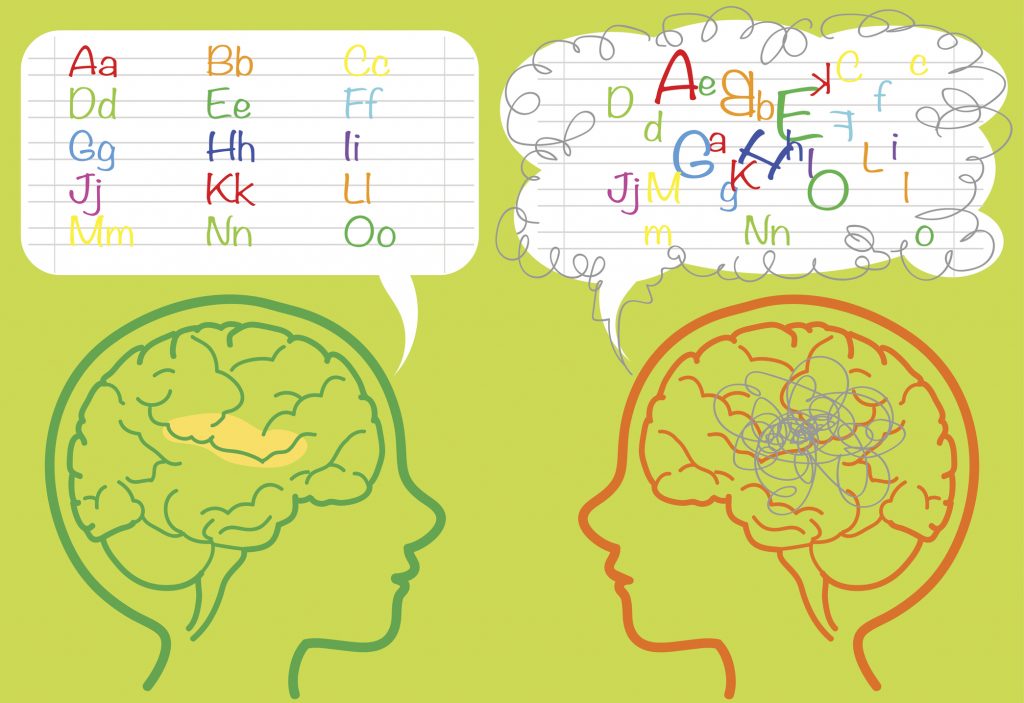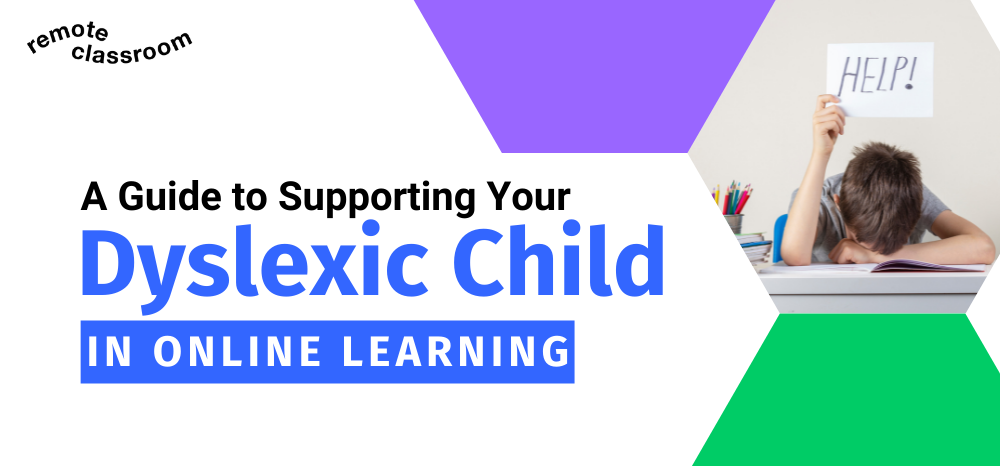Parents want their children to succeed in school and be able to develop their full potential. Online learning from home can be very effective for a dyslexic child as well.
Dyslexia is not an illness but a lifetime condition that affects adults and children. Still, the difficulties linked with dyslexia can be overcome with the right approach to learning. Some examples of this are improved spatial reasoning, creativity, and out-of-the-box thinking.

Clay letters spelled “DYSLEXIA.” Photo from iStock.
Generally, dyslexic children learn best when learning is presented in a multisensory way, in little sequential information, at the child’s desired pace, with many options for repetition and verbal praise.
Strategies to Support Your Dyslexic Child at Home
As parents, you can only do your best to support your child’s learning, so don’t feel bad if you don’t feel like you can do a lot! What matters most is that your child knows that they are loved and supported.

A dyslexic child. Photo from iStock.
Knowing that the “correct technique” varies from each person is an essential factor in finding it. Parents should keep in mind that no two dyslexic children struggle the same way.
Here are some tips to support them:
-
Strengthen their thinking skills
Encourage your child to develop cognitive skills that help him become a more independent and active learner instead of a passive one. Discuss the problem or a school assignment– listen and exchange views. This would also be a wonderful way to spend quality time with your family.
-
Encourage your dyslexic child to be keen on reading
Ask your child: What do you have to learn? What do you already know about the topic? You can also ask them questions about the key ideas of the topic or the main characters of the story. Ask them about their strategies for answering their quizzes.
Read more: 7 Tips to Help Boost Your Child’s Comprehension with Reading
-
Motivate them to work independently
Let them ask their questions and approach the work independently – and tell them you will check it later. You can ask them if they used the plan you discussed or have them explain how they solved a math problem.
-
Divide subjects into manageable parts
Parents can assist their children in breaking down schoolwork into smaller, more feasible parts. Divide questions into groups on a worksheet. Let your child perform a task piece by piece.
-
Give them words of affirmation
Every child values appropriate praise and rewards, especially from the parents. When it’s necessary, make special efforts to thank them for their achievements and emphasize their good behavior.
-
Support them in developing a positive self-image
Many children were unjustly classified as fools, stupid, lazy, not trying hard enough, or being willfully disobedient in the past since dyslexia wasn’t generally understood. Of course, all of it isn’t true.
They may have to work considerably harder than other children to keep up with schoolwork, which can be exhausting and harmful to self-esteem. Remind your dyslexic child of their strengths and help them put things in perspective, especially when they’re having a bad day.
-
Set up a study area for your dyslexic child
Every kid has a unique learning style. Some will be comfortable sitting at the kitchen counter with multiple activities happening around them, while others want complete silence for them to accomplish their tasks. Ensure that your kids know they have a safe place to go when they need it.
-
Make sure they get enough sleep
Sleep is important for your child, whether or not they have dyslexia. Well-nourished and well-rested children learn more effectively. So, put them to bed early so they can wake up with full energy. A good night’s sleep can help them feel more confident.

Non-dyslexic brain vs. dyslexic brain. Photo from iStock.
It is very important to encourage the things that a struggling child enjoys and excels at so that he feels confident in certain areas. This could be sports, theater, art, science, debating team, or anything else that makes him happy.
Sharing success stories about people with dyslexia may also help them to get motivated in whatever they do.
Read more: Ways Parents Can Help Their Kids Thrive in Remote Learning
Remote Classroom for Kids with Dyslexia
Students benefit from the flexibility of studying on their own time, and parents benefit from the opportunity to sit in with their dyslexic child or other specific needs and help them build methods.
At Remote Classroom, our experienced dyslexia teachers communicate with students via email, phone conversations, and one-on-one virtual sessions to guarantee that they are visually guided through lessons instead of giving them complete worksheets, allowing them to gain real-world skills.

